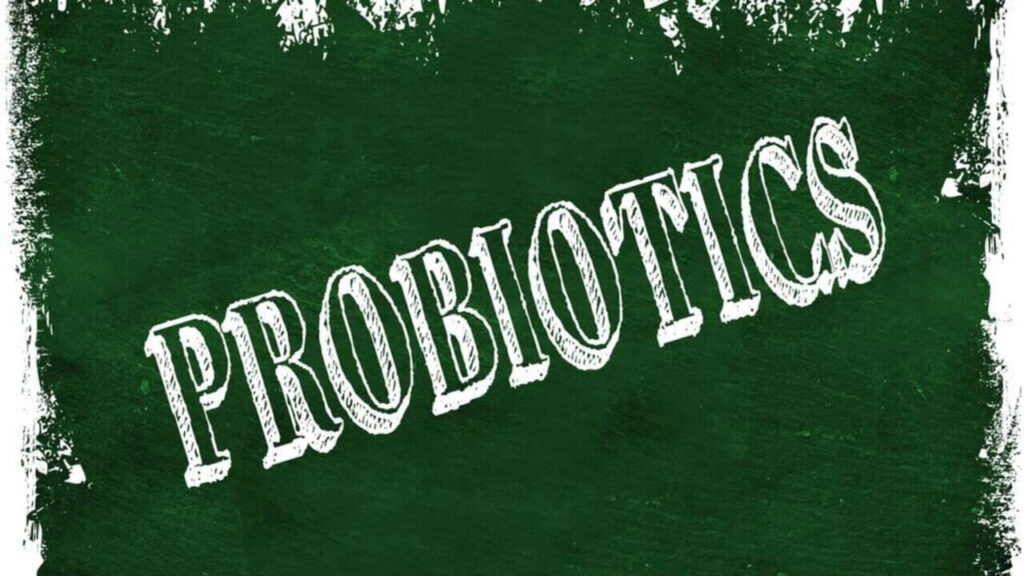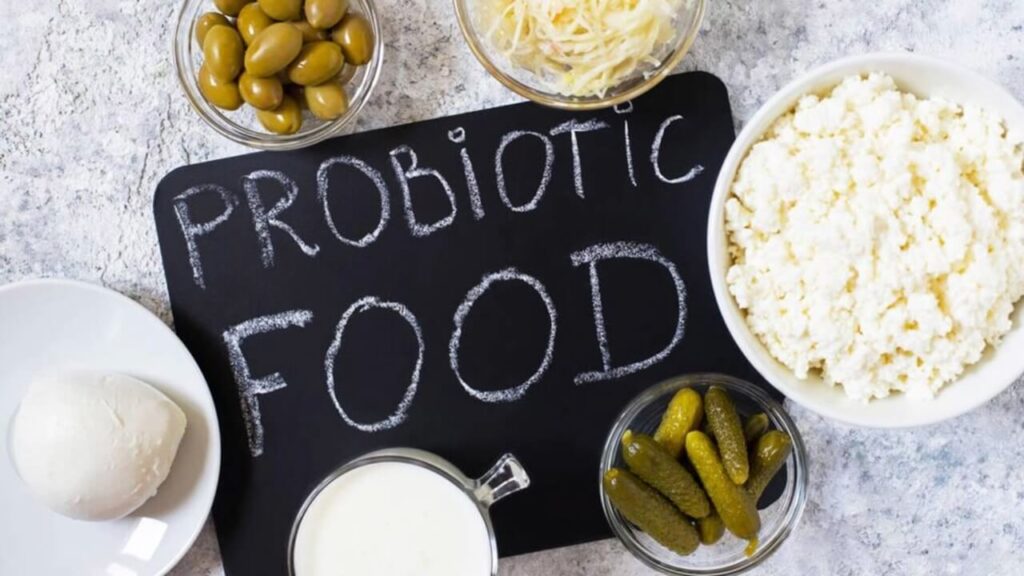
Probiotics are live microorganisms, typically bacteria or yeast, that are ingested or otherwise administered to potentially aid in the prevention and treatment of certain health conditions, primarily gastrointestinal disorders. These tiny allies have garnered significant attention due to their potential benefits for our well-being.
Here are some key points about probiotics:
Historical Origins:
- The concept that certain microorganisms could benefit digestion and immune function emerged in the early 20th century, thanks to the work of Russian-born zoologist and microbiologist Élie Metchnikoff.
- Interest in probiotics surged in the early 21st century as we gained more knowledge about the human microbiome.
Common Types of Probiotics:
- Lactic-Acid Bacteria: Strains of Lactobacillus and Streptococcus fall into this category. They are normal components of the human microbiome and have been used for centuries in the production of yogurt, cheese, and some pickled foods.
- Bifidobacterium Bacteria: Another type of probiotic.
- Saccharomyces boulardii: A beneficial yeast strain.
Forms of Probiotics:
- Probiotic microorganisms occur naturally in certain foods, such as yogurt and pickled items.
- Additionally, they are available over the counter as capsules, powders, liquids, or chewable tablets.
Research and Health Conditions:
- Studies have explored probiotics for various gastrointestinal conditions, including Crohn’s disease, ulcerative colitis, and pouchitis (inflammation of a surgically created rectum).
- While most studies show little or no detectable benefit for these conditions, the most convincing evidence lies in the realm of diarrheal diseases.
- For instance, Saccharomyces boulardii has been associated with reduced frequency of diarrheal episodes in children with acute diarrhea.
- Certain strains, like L. rhamnosus GG, may modestly reduce the duration of infectious diarrhea.
- Probiotics may also help prevent antibiotic-associated diarrhea in both children and adults.
Safety and Caution:
- Probiotics are generally considered safe.
- However, in rare cases, they have been associated with severe bacteremia (bacterial infection of the blood) and fungemia (fungal infection of the blood) in immunocompromised patients.
In summary, probiotics play a crucial role in maintaining gut health and supporting our overall well-being. Remember, they’re like the friendly neighborhood superheroes of your digestive system! 🦠🌟
For more detailed information, you can explore reputable sources such as Britannica, Mayo Clinic Health System, and Cleveland Clinic.
What are the benefits of probiotics?
Let’s explore the remarkable benefits of probiotics:
Balancing Gut Bacteria:
- Probiotics consist of “good” bacteria that can restore the natural balance of gut microbiota.
- An imbalance, caused by factors like illness, antibiotics, or poor diet, can lead to digestive issues, allergies, mental health problems, and obesity.
Diarrhea Prevention and Treatment:
- Probiotics are renowned for their ability to prevent or reduce the severity of diarrhea.
- Antibiotics often disrupt the gut’s bacterial balance, leading to diarrhea. Probiotics can counteract this effect.
- Studies show that probiotics reduce the risk of antibiotic-associated diarrhea and even infections like C. difficile by up to 60%.
Mental Health Support:
- Certain probiotic strains may improve mental health conditions.
- Although more research is needed, evidence suggests a positive impact on mood and anxiety.
Heart Health:
- Specific probiotics can contribute to heart health.
- They may help lower blood pressure, reduce cholesterol levels, and enhance overall cardiovascular well-being.
Allergy and Eczema Management:
- Probiotics may reduce the severity of allergies and eczema.
- By modulating the immune response, they can alleviate symptoms and promote skin health.
Digestive Disorder Relief:
- Probiotics can ease symptoms of various digestive disorders.
- Conditions like irritable bowel syndrome (IBS), inflammatory bowel disease (IBD), and bloating may benefit from probiotic supplementation.
Immune Function Enhancement:
- Probiotics play a role in supporting the immune system.
- They help protect against harmful bacteria and promote overall immune function.
Weight Management:
- While not a magic solution, probiotics may aid in weight loss.
- Their influence on metabolism and appetite regulation contributes to this potential benefit.
Incorporating probiotics into your diet through fermented foods or supplements can positively impact your health. Remember, these friendly microorganisms are like tiny superheroes for your gut! 🦠🌟
For more detailed information, you can explore reputable sources such as Healthline, Harvard Health, and Harvard Health (Staying Healthy).
Probiotic Supplements
Probiotics are beneficial bacteria that support gut health. Here are some well-regarded probiotic supplements:
- Culturelle Digestive Daily Probiotic Capsules: Overall top pick.
- Ritual Synbiotic+ Probiotic Capsules: Great for general gut health.
- Mindbodygreen Probiotic+: Specifically for bloating.
- Seed DS-01 Daily Synbiotic: Available through subscription.
- Garden of Life Dr. Formulated Probiotics Once Daily Capsules: Supports weight loss.
- Jarrow Formulas Jarro-Dophilus EPS Capsules: Affordable option.
- Klaire Labs Ther-Biotic Pro IBS Relief Capsules: Ideal for IBS-related symptoms.
- Florastor Daily Probiotic Capsules: Effective for diarrhea.
- Align Extra Strength Probiotic Capsules: Eases general GI discomfort.
How to incorporate more fermented foods into your diet?

Fermented foods are rich in probiotics. Here are ways to include them in your diet:
Breakfast:
- Add yogurt, kefir, or buttermilk to smoothies or top granola.
- Try homemade coconut yogurt.
Lunch:
- Add fermented pickles to sandwiches or use fermented mayo.
- Tuck lacto-fermented dilled carrot chips into bagged lunches.
Dinner:
- Have a small portion of raw sauerkraut.
- Stir homemade sour cream or juice from fermented veggies into soup.
- Serve lacto-fermented chutneys with entrées.
Snacks and Extras:
- Pair chips with cultured dairy ranch dip.
- Snack on old-fashioned lacto-fermented dill pickles.
- Make water kefir sodas or lacto-fermented ginger ale.
Remember to consult a healthcare professional for personalized advice on probiotic supplementation. 🌿
Fermented Food Recipes:
Fermented foods are not only delicious but also beneficial for gut health. Here are some recipes to try:
- Homemade Sauerkraut: Making your own sauerkraut is easier than you think. All you need is some chopped green cabbage, kosher salt, and a Mason jar. The results are far better than store-bought sauerkraut.
- How To Make Kombucha Tea at Home: Learn to make kombucha, a tangy drinkable tea with various flavors. It’s made from sweetened tea and fermented with a SCOBY (symbiotic culture of bacteria and yeast).
- How To Make Milk Kefir: Similar to drinkable yogurt, milk kefir is easy to make at home using whole milk and kefir grains. You can reuse the grains indefinitely.
- How To Make Kimchi: Kimchi is a well-loved fermented food. Try this simple Mason jar recipe to make your own.
- Lacto-Fermented Mixed Pickles: Create delicious, nutritious pickled vegetables at home using salt. It takes just minutes and provides gut-loving benefits.
How to choose the right probiotic for your needs?
When selecting a probiotic supplement:
- Research Your Condition: Look for strains supported by science for your specific needs.
- Quality Matters: Choose a trustworthy brand with high grades.
- Consider Strains: Pay attention to genus, species, and strain names. All three matter.
- Colony Forming Units (CFUs): Check how much bacteria you’re getting per dose.
- Consult Your Doctor: Ask your doctor for personalized recommendations.
Other Gut-Friendly Foods Besides Fermented Ones:
While fermented foods are excellent, consider these options too:
- Plain, Unsweetened Yogurt: Rich in probiotics.
- Kefir: A tangy, drinkable yogurt-like beverage.
- Kimchi: Spicy fermented cabbage.
- Miso: A Japanese paste made from fermented soybeans.
- Pickles: Opt for naturally fermented ones.
- Sauerkraut: Fermented cabbage.
- Soft Cheeses: Some varieties contain probiotics.
- Sourdough Bread: Naturally leavened with beneficial bacteria.
- Tempeh: Fermented soy product.
These foods support gut health and provide essential nutrients.
How to know if a probiotic is working for you?
While there’s no definitive proof, watch for these subtle signs:
- Regular Bowel Movements: Improved consistency and regularity.
- Less Bloating: Reduced abdominal discomfort.
- Better Sleep and Mood: Probiotics may positively impact sleep and mental well-being.
- Fewer Infections: A stronger immune system.
- Healthy Glucose and Cholesterol Levels.
Recommend some probiotic-rich recipes?
Making fermented foods at home is an excellent way to ensure you get probiotics in your diet. Here are some simple and delicious recipes:
- Sauerkraut: Easy and inexpensive to make. Delightfully crunchy and tangy.
- Kombucha Chia Seed Smoothie: Combines the benefits of kombucha with chia seeds for a gut-friendly drink.
- Yogurt with Fresh Fruits and Nuts: Start your day with probiotic-rich yogurt topped with fruits and nuts.
- Kimchi: Spicy fermented cabbage.
- Kefir: A tangy, drinkable yogurt-like beverage.
- Fermented Pickles: A side dish or add them to sandwiches and wraps.
- Kombucha: Supports digestion, immunity, and weight loss.
How to track your gut health progress while taking probiotics?
To monitor your gut health while taking probiotics:
- InsideTracker Gut Health Goal: InsideTracker offers personalized recommendations based on blood biomarkers and physiomarkers related to gut health.
- Activity Tracker Data: If you connect an activity tracker, sleep and exercise data can contribute to your gut health assessment.
- Symptoms and Well-Being: Pay attention to changes in digestion, energy levels, mood, and overall well-being.
- Regular Blood Tests: Periodic blood tests can track relevant markers like hsCRP, cortisol, HDL cholesterol, triglycerides, glucose, and HbA1c.
Remember to consult a healthcare professional for personalized advice on hernia treatment and probiotic supplementation. 🌿
Recommend some probiotic-rich snacks
Boost your gut health with these tasty snacks:
- Mixed Nuts: Almonds, walnuts, and cashews.
- Greek Yogurt with Berries: A protein-packed and probiotic-rich option.
- Vegetable Sticks and Hummus: Crunchy veggies paired with a chickpea-based dip.
- Hard-Boiled Eggs: A portable and protein-filled snack.
- Whole Grain Crackers with Avocado: Avocado provides healthy fats and fiber.
How to assess your gut health without blood tests or trackers?
While at-home tests can provide insights, consider these methods:
- Visual Inspection: Observe your digestion, bloating, and overall well-being.
- The Beet Test: Eat beets and monitor how long it takes for red urine or stool.
- Functional Stool Analysis: Look for signs of healthy digestion and gut balance.
- Lactulose Breath Test: Assess gut fermentation and bacterial overgrowth.
- Gut Health Quiz: Take online quizzes to gauge your gut health.
Remember that professional advice is essential. Consult your healthcare provider for personalized recommendations based on your specific situation. 🌿
Recommend some probiotic-rich desserts
Boost your gut health with these delicious probiotic-enriched dessert ideas:
- Yogurt Parfait: Layer Greek yogurt with fresh fruits and granola.
- Kefir Smoothie: Blend kefir with your favorite fruits and a touch of honey.
- Sourdough Pancakes: Use a sourdough starter to make fluffy pancakes.
- Probiotic Banana Bread: Add a capsule of probiotics to your favorite banana bread recipe.
- Yogurt Popsicles: Combine yogurt with fruits and freeze them into refreshing popsicles.
How to improve your gut health through lifestyle changes?
Simple adjustments can significantly impact your gut health:
- Balanced Diet: Include fermented foods, fiber-rich fruits, and vegetables.
- Hydration: Stay well-hydrated.
- Stress Management: Practice relaxation techniques.
- Regular Exercise: Engage in physical activity.
- Adequate Sleep: Prioritize quality sleep.
- Avoid Antibiotics Unnecessarily: Use them judiciously.
- Different Cleaning Products: Diversify your cleaning products.
Remember to consult a healthcare professional for personalized advice on hernia recovery and gut health. 🌿
Recommend some probiotic-rich main courses
Boost your gut health with these delicious probiotic-rich main course ideas:
- Kefir-Marinated Grilled Chicken: Marinate chicken in kefir (a fermented dairy drink) before grilling.
- Tempeh Stir-Fry: Sauté tempeh (fermented soybean cake) with vegetables and your favorite sauce.
- Miso-Glazed Salmon: Use miso paste to create a flavorful glaze for baked or grilled salmon.
- Sauerkraut-Stuffed Peppers: Fill bell peppers with sauerkraut and rice for a tangy twist.
- Kimchi Fried Rice: Add kimchi (fermented spicy cabbage) to fried rice for extra flavor.
- Yogurt-Marinated Tandoori Chicken: Marinate chicken in yogurt and spices before baking or grilling.
These dishes not only taste great but also support your gut health.
How to maintain gut health while traveling or eating out?
Traveling can disrupt your gut, but here are some tips to keep it healthy:
- Don’t Overeat: Enjoy new foods but avoid overeating to prevent stomach strain.
- Fiber Intake: Consume as much fiber as you would at home. Opt for cooked vegetables and peeled fruits.
- Stay Hydrated: Dehydration can lead to constipation, so drink plenty of water.
- Choose Beverages Wisely: Limit sugary, caffeinated, and alcoholic drinks.
- Get Groceries Locally: Buy healthy snacks from local stores.
- Wash Hands Frequently: Maintain hygiene to prevent infections.
- Carry Medications: Be prepared for any digestive issues.
Remember to consult a healthcare professional for personalized advice on hernia recovery and gut health. 🌿
Recommend some probiotic-rich side dishes
Boost your gut health with these delicious probiotic-rich options:
- Sauerkraut: Easy and inexpensive to make.
- Kombucha Chia Seed Smoothie: Blend kombucha with chia seeds.
- Tempeh Stir-Fry: Sauté tempeh with veggies.
- Kimchi: Spicy fermented cabbage.
- Yogurt Parfait: Layer Greek yogurt with fruits and granola.
- Fermented Pickles: Add them to sandwiches or wraps.
- Kanji: A traditional Indian probiotic drink.
- Kombucha: A refreshing beverage option.
How to support your gut health during long flights or road trips?
Long flights or road trips can impact gut health. Here’s how to support it:
- Stay Hydrated: Drink water to prevent dehydration.
- Prebiotics and Probiotics: Consume foods rich in prebiotic fiber and take probiotics.
- Healthy Snacks: Pack nutrient-dense snacks.
- Food Safety: Choose wisely when eating out.
- Stress Management: Practice relaxation techniques.
- Exercise: Walk, do yoga, or tai chi.
- Nature Time: Spend time outdoors to relieve stress.
Remember to consult a healthcare professional for personalized advice on hernia recovery and gut health. 🌿
Recommend some probiotic-rich breakfast ideas
Start your day with these gut-friendly breakfast options:
- Overnight Oats: Mix old-fashioned oats with milk and yogurt for a portable, make-ahead breakfast.
- Probiotic Breakfast Bowls: Load up on whole grains, sautéed greens, eggs, creamy yogurt, avocado, and tangy kraut.
- Raspberry Ginger Power Smoothies: Blend raspberries, ginger, lime juice, and Greek yogurt for a refreshing smoothie.
- Quinoa Kimchi Bowl: Combine seasoned quinoa, spicy broccoli, miso mushrooms, and tangy kimchi.
- Savory Yogurt Bowl: Inspired by raita, top yogurt with sliced veggies and fried mustard seeds.
- Sweet Morning Potato: Customize with nuts, currants, banana, berries, or granola.
- Rainbow Chia Pudding Bowls: Scrumptious, pretty, and gluten-free.
- Chia Pudding: Classic chia seed pudding with endless variations.
How to maintain gut health during a busy work schedule or frequent travel?
Even with a hectic schedule, prioritize your gut health:
- Stay Hydrated: Drink water to prevent dehydration.
- Consume Fiber and Fermented Foods: Include prebiotic-rich foods and probiotics.
- Prioritize Sleep: Lack of sleep affects gut health.
- Practice Stress Management: Stress impacts digestion.
- Choose Healthy Fats: Opt for avocados, nuts, and olive oil.
- Limit Bacteria-Killing Agents: Antibiotics and antibacterial products can disrupt gut flora.
- Eat Mindfully: Slow down and chew your food.
- Take Spore Probiotic Supplements: Consider adding spore-based probiotics to your routine.
Remember to consult a healthcare professional for personalized advice on maintaining gut health during your busy schedule or travel. 🌿
Recommend some probiotic-rich lunch ideas
Incorporating probiotic-rich foods into your lunch can benefit your gut health. Here are some ideas:
- Sauerkraut: Easy to make at home and delightfully crunchy and tangy.
- Kombucha Chia Seed Smoothie: Blend kombucha with chia seeds for a refreshing drink.
- Ketobiotic Sushi Bowl: Combine cauliflower rice, smoked salmon, avocado, cucumber, and sesame seeds.
- Cobb Salad with Kefir Ranch Dressing: A salad with mixed greens, grilled chicken, bacon, avocado, eggs, and blue cheese.
- Homemade Kimchi: Spicy fermented cabbage.
- Probiotic-Rich Yogurt Parfait: Layer Greek yogurt with fruits and granola.
- Tempeh Stir-Fry: Sauté tempeh with veggies.
- Kefir-Marinated Grilled Chicken: Marinate chicken in kefir before grilling.
These options provide a tasty way to support your gut health during lunchtime.
How to support your gut health during irregular work hours or night shifts?
Maintaining gut health during irregular schedules is crucial. Consider these strategies:
- Consistent Eating Schedule: Establish regular meal intervals during your awake hours.
- Listen to Your Body: Pay attention to natural cues for toilet breaks.
- Control Bowel Motions: Maintain a regular schedule to avoid disruptions.
- Stay Hydrated: Drink water to prevent dehydration.
- Avoid Excessive Caffeine: Limit its consumption during night shifts.
- Prioritize Sleep: Even during irregular hours, aim for quality sleep.
- Nutrition: Opt for balanced meals and avoid excessive snacking.
- Limit Processed Foods: Choose whole, nutrient-dense options.
- Avoid Heavy Meals Before Sleep: Opt for lighter options.
Remember to consult a healthcare professional for personalized advice on maintaining gut health during irregular work hours or night shifts. 🌿
Recommend some probiotic-rich dinner ideas
Incorporating probiotic-rich foods into your dinner can benefit your gut health. Here are some ideas:
- Sauerkraut: Easy and inexpensive to make. Delightfully crunchy and tangy.
- Kombucha Chia Seed Smoothie: Blend kombucha with chia seeds for a refreshing drink.
- Ketobiotic Sushi Bowl: Combine cauliflower rice, smoked salmon, avocado, cucumber, and sesame seeds.
- Cobb Salad with Kefir Ranch Dressing: A salad with mixed greens, grilled chicken, bacon, avocado, eggs, and blue cheese.
- Homemade Kimchi: Spicy fermented cabbage.
- Probiotic-Rich Yogurt Parfait: Layer Greek yogurt with fruits and granola.
- Tempeh Stir-Fry: Sauté tempeh with veggies.
- Kefir-Marinated Grilled Chicken: Marinate chicken in kefir before grilling.
These options provide a tasty way to support your gut health during dinner.
How to support your gut health during stressful work situations or tight deadlines?
Stress can impact gut health, but there are ways to mitigate its effects:
- Mindful Eating: Take your time when you eat. Avoid rushing during tight deadlines.
- Stay Hydrated: Dehydration affects digestion.
- Avoid Junk Food: Opt for whole foods instead.
- Exercise: Even short walks can help reduce stress.
- Deep Breathing: Practice slow, intentional breaths.
- Prioritize Sleep: Lack of sleep affects gut health.
- Limit Caffeine: Excessive caffeine can worsen stress.
- Focus on Whole Foods: Include high-fiber foods and omega-3s in your meals.
Remember that small lifestyle changes can significantly impact your gut health during stressful work situations.
Remember to consult a healthcare professional for personalized advice on maintaining gut health during stressful work situations. 🌿






























Way cool, some valid points! I appreciate you making this article available, the rest of the site is also high quality. Have a fun.
Hi! I know this is kind of off topic but I was wondering which blog platform are you using for this site? I’m getting tired of WordPress because I’ve had problems with hackers and I’m looking at options for another platform. I would be fantastic if you could point me in the direction of a good platform.
Hello, Neat post. There’s a problem together with your web site in web explorer, may test this?K IE still is the market chief and a good section of other folks will omit your wonderful writing due to this problem.